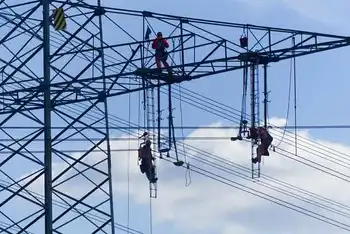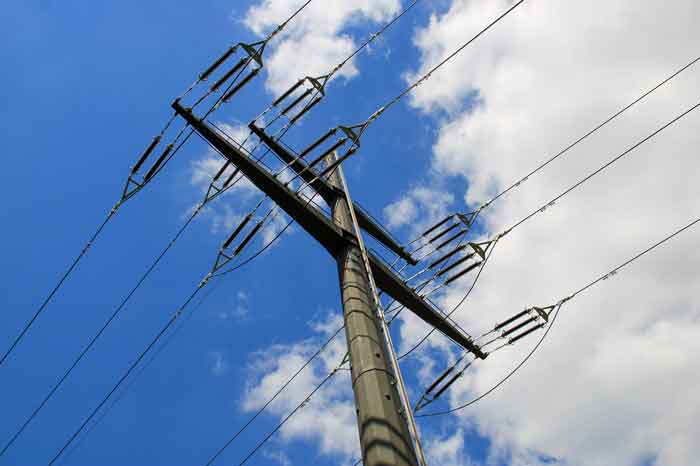150,000 time-of-use bills incorrect
ONTARIO - The system for reading homeownersÂ’ smart meters, which measure time-of-use electricity consumption, is inaccurately charging at least 150,000 Ontarians for hydro power, the Star has learned.
Internal documents show the meter-reading computer system and the meters themselves do not meet federal measurement standards and must be repaired before January 1, 2012.
“The environment is right for a class-action lawsuit,” one worried industry source said.
“This is another cloud in the perfect storm that’s brewing in the electricity sector and, in all this nickel-and-diming, the consumer is taking the brunt.”
Ottawa has warned the provinceÂ’s Independent Electricity System Operator IESO and the Ministry of Energy and Infrastructure MEI that ratepayers might be treated unfairly because of the problem.
“Measurement Canada wishes to advise the IESO and the Ontario MEI that contractors utilities who issue billing invoices which establish supplied electricity quantities on the basis of interval data and not on the basis of meter registration i.e. start and finish meter reads will be considered in contravention of the requirements of the Electricity and Gas Inspection Act,” wrote Gilles Vinet, a vice-president of the federal measurement agency.
A spokesman for the IESO – which oversees Ontario’s electricity system – downplayed the significance of the problem, which affects at least 150,000 customers at five local utilities.That’s a fraction of the 4.5 million electricity consumers in the province.
“It’s not like anyone’s being overbilled vastly or underbilled vastly… it’s really around a few cents a month, up or down,” said Terry Young, vice-president of corporate relations for the IESO.
The amounts could be as little as three to five cents, he added.
“It has to do with the way meters were read previously and the way they’re read now.”
The utilities are: Newmarket Hydro Horizon in Hamilton Veridian, which serves Pickering, Ajax, Uxbridge, Bowmanville, Newcastle and Port Perry, Chatham-Kent Hydro and Hydro One. Toronto Hydro customers are not affected.
If the matter were urgent, the deadline for a fix would be sooner than 2012, Young added, noting that in previous meter reading systems, electricity consumption would be estimated monthly between hands-on readings once or twice a year and billings adjusted accordingly.
But NDP Leader Andrea Horwath said the problem makes it difficult for consumers – already facing the new 13 per cent harmonized sales tax on electricity – to have faith their bills are accurate.
“What are people supposed to say when they get their bill? That we trust them?” said Horwath. “You can’t trust this government to bring anything in over the finish line.”
In his Nov. 16, 2009 letter to the IESO, Measurement Canada’s Vinet noted it is “a contractor’s obligation to utilize approved and verified metering functions for this purpose.”
Last Jan. 6, the electricity systemÂ’s vice-president and chief information officer conceded there are technical problems.
“We acknowledge that Measurement Canada has expressed concern in respect to time-of-use TOU customers not having the register reading displayed on their invoice,” Bill Limbrick said in a letter responding to Vinet’s missive.
“We understand your position that there is a need for a customer to reconcile billed electricity quantities with cumulative register readings,” he continued.
“We have already contacted our software vendor to explore how the MDM/R meter data management/repository system might support achievement of the above objectives.”
Limbrick’s letter goes on to say while the IESO is “hopeful” the changes could be done by late this year and in place in 2011, “it is difficult to estimate the overall timeframe for full implementation.”
Another industry insider said the meter data management/repository system has “so many data points and is so complicated” that even if it were 99 per cent accurate, many customers would still be paying erroneous charges.
Energy and Infrastructure Minister Brad Duguid said he had not heard there are problems with accuracy concerning the meter data management repository or that Ottawa had contacted his ministry.
“No, I’m not aware of that concern,” Duguid said in Windsor, where he was attending the Association of Municipalities of Ontario meeting.
Duguid said this is a “period of transition” in the energy sector.
“We’ve had to invest heavily in building energy supply to ensure families and businesses have enough supply to meet their needs,” he said.
The smart meter problem comes on the heels of revelations in the Star that homeowners could face up to an additional $48 in annual hydro costs due to a concession on electricity rates for 200 major industrial users.
Duguid disputed industry sources who calculated that homeowners could see a yearly rate increase of anywhere from $18 to $48 due to the shift in what’s known as the “global adjustment mechanism” on monthly hydro bills.
The minister insisted “any increases to consumers will be minimal, if at all,” but did not give specific figures.
Progressive Conservative Leader Tim Hudak, meanwhile, said the Liberals are just slipping in another rate increase.
“Ontario families are already paying hundreds of dollars more just to keep the lights on. They cannot afford another expense on their hydro bills,” said Hudak, who was also in Windsor.
The Canadian Federation of Independent Business, representing smaller firms, was furious that its members wonÂ’t be able to take advantage of time-of-use rates to keep their energy costs down.
“Small businesses just got awarded a bigger share of the energy pie, right in the face,” said spokesperson Satinder Chera.
Related News

Spent fuel removal at Fukushima nuclear plant delayed up to 5 years
TOKYO - The Japanese government decided Friday to delay the removal of spent fuel from the Fukushima Daiichi nuclear power plant's Nos. 1 and 2 reactors by as much as five years, casting doubt on whether it can stick to its timeframe for dismantling the crippled complex.
The process of removing the spent fuel from the units' pools had previously been scheduled to begin in the year through March 2024.
In its latest decommissioning plan, the government said the plant's operator, Tokyo Electric Power Company Holdings Inc., will not begin the roughly two-year process at the No. 1 unit at least until…




